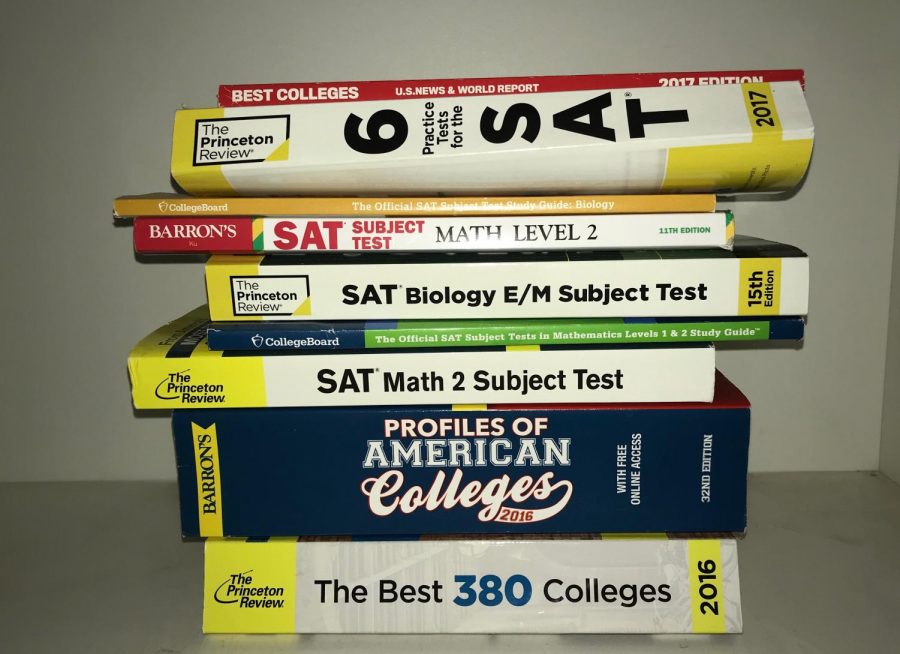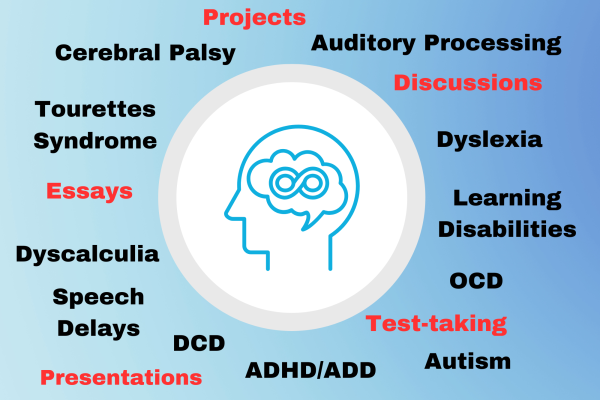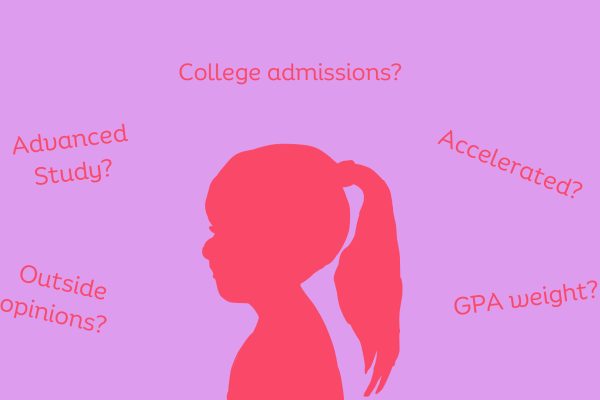Op-Ed: Are standardized tests ACTually effective?
Photo credit: Molly Goldberg
My older sister’s SAT prep books. There are many problems that exist within the standardized testing process.
As the second semester of sophomore year begins, I can’t stop thinking about the impending standardized tests that I will take next year. These will help determine my future. I can’t stop thinking about the hours of rigorous tutoring, studying and testing I will undergo in order to hopefully get into a college of my choice. I can’t stop thinking about college.
Growing up in Los Angeles, in a community driven by wealth, where many are highly educated and connected, we are taught that our success is measured by our intelligence. And so, since birth, we are trained to compete against our peers in school and strive to be best of the best. We are taught that in order to get into elite colleges, one must train for standardized tests with the intensity of training for a marathon.
In school, I’ve always gotten out what I’ve put in. It’s such a beautiful system where if people are willing to put forth their heart and soul, they can get the well deserved affirmation of an A or 100 percent. But what can we say about a test that only gives a perfect score to those who have such an obscure gift? They can fill in bubbles and keep fierce concentration for hours, but this isn’t a reflection of their academic capability or their intellectual curiosity. So while with knowledge comes great power, filling in the correct bubble on a scantron does not determine who we are as humans and therefore should not determine the course of our lives.
Contrary to popular belief, standardized tests don’t measure people’s actual abilities such as work ethic or level of creativity —both skills that will benefit a student for the rest of their life. Rather, tests focus on a certain skill that will have no correlation to real life. Determining the tone of an excerpt about why birds fly in a V formation is not going to help you in college and beyond, and therefore it is unfair to use scores from that as a determining factor for college admission.
While the point of standardized tests is to be an equal quantifier of every applicant’s talent, a frightening discrepancy still lies between the resources of the upper class elite and those in the lower class, who can’t access the same tutoring. Going into the test, participants are supposed to be at an equal footing, but the upper class seems to have unlocked the secret formula for success that is unavailable or foreign to those without the resources.
SAT tutoring has become the norm among upper to middle class students, immediately putting them at an unfair advantage. Those who have money can afford to score well on the test, while those who can’t afford costly tutoring must enter the test cold—some possibly having no standardized testing experience at all. It’s no wonder the students whose families have a higher income do better on the test — they have access to the resources that allow them to do so. Archer has implemented SAT tutoring at X-Block, but unfortunately it also costs additional fees.
Many college admission boards in the United States say that the admissions process is a holistic one, meaning they analyze every component of the applicant. Yet, many schools will put an application aside without even looking at it if an applicant’s test score is not in their range. This means that if a student who is absolutely fit for a certain school does not meet that school’s threshold for testing scores, they will be completely thrown out of the applicant pool.
However, some schools have left this corrupt system of injustice behind. Institutions like Wesleyan University, Bates College and George Washington University have gone test optional.
“The test-optional policy should strengthen and diversify an already outstanding applicant pool and will broaden access for those high-achieving students who have historically been underrepresented at selective colleges and universities, including students of color, first-generation students and students from low-income households,” Laurie Kohler, head of enrollment at George Washington University said in an interview with NPR.
So while it may be an exceptionally unrealistic concept to even consider, contemplating a system without standardized tests is an enticing prospect. Imagine a college campus filled with successful students who could carry their weight. Universities where every student was admitted based purely on their individual strengths and passions. No lucky 1600s who sleep through class and party all night. A campus free of 36s who took advantage of the system in order to get into a school whose academic rigor is beyond their reach, leaving them lost in their formative years of college.
By being test optional, colleges would be crafting their student bodies with the strongest athletes, club leaders, musicians and the most capable and successful individuals, who are eager to make a difference — not just people whose test scores look good on paper.

Molly Goldberg joined the Oracle staff in 2017 as a staff writer and was promoted Sports Editor for her junior year. This year, she is excited to fill...















Kelsey Thompson • Feb 19, 2018 at 6:22 pm
Amazing article Molly! I love getting to see your opinion on the college process, can’t wait to read more from you!
Jen Dohr • Feb 19, 2018 at 5:57 pm
Well researched and articulated, Molly! Creativity, collaboration, communication…you’re right that none of these emerge on a standardized test. Let’s keep pushing for change!
Christina Moore • Feb 17, 2018 at 9:47 am
I agree wholeheartedly! But I believe change may be on the horizon.
https://www.noodle.com/articles/15-top-test-optional-colleges-and-what-you-need-to-get-in
Some colleges may use portfolios in lieu of standardized tests. I think this would be a step in the right direction!
Kudos! Enjoyed reading your article!
Charley Griffiths • Feb 12, 2018 at 12:11 pm
Great piece Molly! So eye opening on the realities of the college process. Beautifully written and described! I look forward to reading more of your amazing articles.